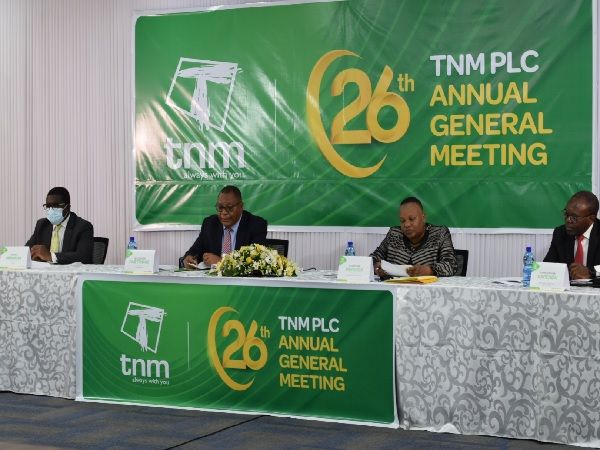By Twink Jones Gadama
In the dynamic landscape of telecommunications, competition is often heralded as the driving force behind innovation, improved services, and customer satisfaction.
However, in Malawi, the mobile service sector, particularly the offerings from Telekom Networks Malawi (TNM) and Airtel Malawi, presents a perplexing scenario where competition appears to be more of an illusion than a reality.
Despite being distinct entities, both providers seem to operate under a similar framework, offering services that are strikingly alike, leading many customers to question the true nature of competition in the market.
This analysis delves into the operational similarities between TNM and Airtel Malawi, exploring the implications for consumers and the broader telecommunications landscape in the country.

At first glance, the services provided by TNM and Airtel Malawi appear to be nearly indistinguishable.
Both companies offer a range of mobile services, including voice calls, SMS, and data packages, which are often marketed with similar pricing structures and promotional campaigns.
This lack of differentiation raises concerns about the extent to which these companies are genuinely competing for customers.
Instead of fostering an environment where innovation and customer-centric services thrive, the market seems to be dominated by a status quo that benefits neither the consumer nor the providers in the long run.
One of the most striking aspects of the TNM and Airtel Malawi offerings is their pricing strategies.
Both companies frequently engage in price wars, undercutting each other to attract customers.
However, this approach often leads to a race to the bottom, where the focus shifts from providing quality services to merely offering the lowest prices.
While consumers may initially benefit from lower costs, the long-term implications can be detrimental.
With both companies locked in a cycle of price competition, there is little incentive for either to invest in infrastructure improvements, customer service enhancements, or innovative service offerings.
As a result, customers are left with a choice between two providers that offer similar, if not identical, experiences.
Moreover, the marketing strategies employed by TNM and Airtel Malawi further blur the lines of competition.
Both companies utilize similar advertising channels and messaging, often highlighting the same features and benefits.
This overlap in marketing not only confuses consumers but also diminishes the perceived value of each brand.
When customers cannot discern a meaningful difference between the two providers, their loyalty becomes tenuous, and they may switch between the two based on minor promotions or pricing changes.
This lack of brand loyalty can be detrimental to both companies, as it fosters an environment where customer retention becomes increasingly challenging.
The customer experience is another area where TNM and Airtel Malawi exhibit striking similarities.
Both providers have faced criticism for their customer service, with many users reporting long wait times, unhelpful representatives, and unresolved issues.
This shared struggle with customer service further reinforces the perception that the two companies are more alike than different.
In a competitive market, one would expect to see distinct approaches to customer service, with each provider striving to outdo the other in terms of responsiveness and support.
However, the reality is that both TNM and Airtel Malawi seem to operate with a similar level of service quality, leaving customers frustrated and disillusioned.
In addition to the similarities in service offerings and customer experience, the technological infrastructure of both companies also raises questions about competition.
The telecommunications sector is heavily reliant on robust infrastructure to deliver quality services, yet both TNM and Airtel Malawi have been criticized for their network reliability and coverage.
In many areas, customers report dropped calls, slow data speeds, and inconsistent service quality, regardless of which provider they choose.
This lack of investment in infrastructure not only hampers the customer experience but also stifles innovation within the industry.
When both companies are operating on similar technological foundations, there is little room for differentiation, and the competitive landscape becomes stagnant.
The regulatory environment in Malawi also plays a significant role in shaping the dynamics between TNM and Airtel Malawi.
The Malawi Communications Regulatory Authority (MACRA) is tasked with overseeing the telecommunications sector, ensuring fair competition and consumer protection.
However, the effectiveness of regulatory oversight has been called into question, as both providers seem to operate with a level of impunity that undermines the principles of competition.
Without stringent regulations and enforcement mechanisms, there is little incentive for either company to innovate or improve their services. Instead, they can continue to operate in a manner that prioritizes short-term gains over long-term sustainability.
The implications of this lack of competition extend beyond the immediate concerns of service quality and customer satisfaction.
A stagnant telecommunications market can have far-reaching consequences for the broader economy.
In an era where digital connectivity is essential for economic growth and development, the inability of TNM and Airtel Malawi to differentiate themselves and provide quality services can hinder progress.
Businesses, entrepreneurs, and individuals rely on reliable telecommunications services to communicate, collaborate, and innovate.
When the market is dominated by two providers that offer similar, subpar services, the potential for economic growth is stifled.
In conclusion, the telecommunications landscape in Malawi, particularly the offerings from Telekom Networks Malawi and Airtel Malawi, presents a concerning picture of competition.
The striking similarities in service offerings, pricing strategies, marketing approaches, and customer experiences suggest that these two providers are operating more as sister companies than as competitors.
This lack of differentiation not only frustrates consumers but also stifles innovation and growth within the industry.
As the regulatory environment continues to evolve, it is imperative for both TNM and Airtel Malawi to recognize the importance of genuine competition and invest in improving their services.
Only then can they break free from the cycle of sameness and truly serve the needs of their customers, fostering a telecommunications market that is vibrant, competitive, and capable of driving economic growth in Malawi.


